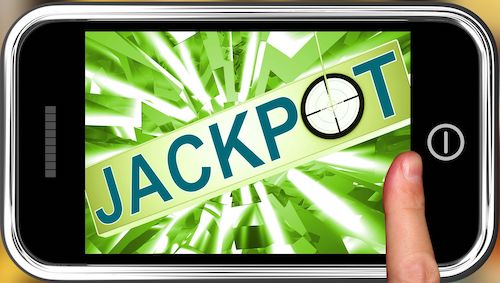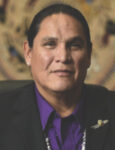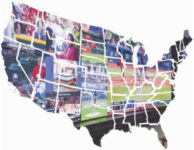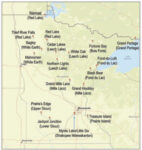
On Super Bowl Sunday, some 50 million Americans placed $16 billion worth of bets on the big game—an all-time high, more than double the $7.5 billion wagered in 2022, according to the American Gaming Association.
But sports fans in California were out of luck. Though the state has 69 casinos, there are no sportsbooks, online or retail. That’s because the tribes who run those casinos don’t want sports betting—not without a guarantee that it’s theirs alone to offer.
The most populous state in the U.S., home of 16 major league sports teams, is also the biggest untapped sports betting market. But for tribal operators, the promise of a new industry comes with considerable risk: the specter of competition from out-of-state commercial operators.
Last November, competing propositions—a retail sports betting bill from the tribes, and an online and mobile version from FanDuel, Draft
Kings, BetMGM and others—failed at the polls, despite an onslaught of advertising (the two sides spent a combined $460 million to push their proposals).
Jacob Mejia, vice president of public affairs for the Pechanga Development Corporation, told CalMatters.com that tribes were less interested in introducing retail sportsbooks than they were in blocking mobile betting. The online measure, he said, was “the biggest threat to Indian gaming in a generation.”
The issue is tabled for now, but it’s sure to be back. At G2E last fall, Mark Macarro, chairman of the Pechanga Band of Luiseño Indians, suggested mobile sports betting in California could be the first domino that kicks off full online casino gaming, which could become “a disaster,” he warned.
“Thank goodness that’s not going to happen this cycle,” Macarro said, in comments made weeks before voters cemented that decision at the polls. “But it’s going to repeat in two years.”
Define ‘Online’
In California, online casino games are still prohibited by the state penal code, under the theory that online bets don’t exist only at the location of a casino server, but wherever the gambler is, and in the vast “out-there” of the internet.
In 2014, when an enterprising California tribe asserted its right to offer online bingo, the Ninth District Court of Appeals stepped in. While the servers were located on tribal land, which presumably made the bets permissible, the court ruled that online bets placed by people not physically on the reservation would violate the Unlawful Internet Gaming Enforcement Act (UIGEA).
That decision meant the end of gaming by the Iipay Nation of Santa Ysabel, whose remote location and limited slot inventory made it hard to compete with larger, more centrally located venues. Shortly after the tribe’s online casino closed, the retail gaming hall followed (it is now a marijuana dispensary).
And then there’s Florida. In 2021, Governor Ron DeSantis and the Seminole Tribe agreed to a “hub-and-spoke” sports betting model, whereby the tribe would offer mobile bets throughout the state via servers on Seminole lands. But Judge Dabney Friedrich called a halt to the launch. He said the model was “legal fiction” for the reasons stated above: the bets would take place beyond tribal land, in the hands of statewide bettors as part of the virtual ether. Two years later, the two sides remain at an impasse.
Double Jeopardy
Tribes have two good reasons to be skeptical of online and mobile betting. One is the potential impact of online business on casino foot traffic. While commercial casinos face the same challenge, it could be harder to navigate for smaller operations, which may not have the reach of, say, a Caesars or an MGM. But how much does online gaming actually threaten land-based?
“To some extent, it’s an unanswered question,” says Brian Wyman, gaming analyst and senior vice president of operations and data analytics for The Innovation Group (TIG). “Most operators agree that in the long run, online gaming will at least partially cannibalize land-based—some people will save the trip and stay home, and others may play online on Tuesday, then say, ‘Oh, that was my budget, I won’t go to the casino on Friday.’”
Big operators work around it by using online as a “hook,” with app-based rewards to be redeemed at the land-based venue or sister resorts around the country. In that way, online gaming gives broader-based operations “the ability to optimize their reach and their brand,” says Chris Irwin, TIG’s senior vice president of Native American Services. “If you’re an online gambler in North Jersey, you can get points to go down to Atlantic City and stay for a weekend. Or you can go out to Vegas to stay, or other properties around the country. It’s really incentive-driven. Not many tribes can capitalize on that.”
Creeping Commercialism
The second reason and the larger concern among tribes is the possibility that online gaming will be thrown open to commercial operators or operating partners, creating competition that was unimaginable when many tribal compacts were written.
That possibility is already a reality in some states. If California voters ultimately approve online and mobile gaming, they must also decide whether to restrict it to reservations or make it available statewide. In the latter case, the licenses could be up for grabs by behemoths like FanDuel and DraftKings—and lawmakers would like nothing more than to dip into those deep pockets. Needless to say, that kind of competition could siphon off revenues that tribal nations rely on.
“In a lot of markets, gaming and the exclusive access to gaming is the lifeblood of tribal governments, supporting hospitals, supporting police and fire departments,” says Wyman. “It’s no exaggeration to say this is a matter of life and death.”
As Sheila Morago, executive director of the Oklahoma Indian Gaming Association, recently pointed out, “This is actually money for higher education, for health care, for infrastructure.” In comments to GamingToday.com, Morago said, “They’re not making decisions on whether or not you get a new yacht or enough money to buy a new Mercedes. It’s about making sure that our kids have money to go to school.”
Despite the longstanding ties between tribal and state governments as well as the jobs and revenues that tribes have added to local and state economies, the big guns of commercial gaming are “willing to pay big taxes and fees that historically haven’t come from tribes,” says Irwin. “Tribes may pay exclusivity fees, but not at the level of what commercial operators might pay in taxes.”
As a result, “tribes would rather not have sports betting at all than jeopardize any part of the business they’re doing right now. It’s opening a Pandora’s box that could lead to commercial gaming not previously in the market.”
High Stakes
For casinos, iGaming wasn’t a possibility until 2011, when the U.S. Department of Justice ruled that the federal Wire Act applied only to sports betting, not iGaming in general. The potential for widespread sports betting didn’t follow until 2018, when the Supreme Court overturned the Professional and Amateur Sports Protection Act (PASPA), opening the door to a legal industry on a state-by-state basis. While iGaming and mobile sports betting go hand-in-hand, they’re different animals, with different profit margins.
New Jersey, for example, legalized iGaming in November 2013; in the first year, operators generated $124 million in gross gaming revenue, “a drop in the bucket compared to what they were making on brick-and-mortar facilities,” says Irwin.
While the industry was slow to take off, it’s been accelerating ever since. In 2022, online casinos in the state brought in more than $1.6 billion in revenue, up 21.6 percent over 2021 and a 13-fold increase over nine years. Those figures, with all those zeroes, have lawmakers salivating.
For all the hype about sports betting and the many billions of dollars in play, the profit margin is pretty meager compared to casino gaming—typically less than 5 percent. It could be argued that tribes aren’t missing much by sitting out that game.
But revenues aside, they must take into account consumer demand. Could tribal operators risk alienating customers who expect or demand mobile and online options?
In 2021, Connecticut lawmakers voted overwhelmingly for a bill to legalize online casino games, mobile sports betting and an online lottery. It was the first overhaul of the state’s gaming laws since the 1990s, when the Mashantucket Pequot and Mohegan tribes opened Foxwoods and Mohegan Sun, respectively.
Connecticut’s agreement “preserved our tribal sovereignty and allowed us to still operate from a point of exclusivity,” says Anika Howard, president and CEO of WONDR NATION, the Mashantucket Pequot Tribal Nation’s gaming and entertainment company.
A Workable Model
Wondr Nation (formerly Mashantucket Pequot Interactive) manages Foxwoods’ social casino and collaborates with DraftKings on co-branded Foxwoods iGaming and sports betting offerings. The subsidiary’s stated goal is to create “maximum opportunities, profitability and impact for industry partners,” expand the tribe’s online footprint and enable it to partner with other Native American tribes and tech firms.
Howard acknowledges concerns that, as legal online gaming proliferates, “the powers-that-be could use it as an opportunity to roll back some of the provisions made in tribal compacts.
“We made a slight compromise on sports” in Connecticut, she says, “because we felt like the bigger opportunity was in online gaming. And so it starts with the strategy. What do you really want to accomplish?”
For Foxwoods, “the goal is to increase revenue, increase opportunities and increase player satisfaction by providing something that people are already doing—playing online, in the legal market or not.
“We’ve entered a mobile-first society,” Howard continues. “At this point, it’s expected—if you can buy coffee with your mobile phone, why can’t you play your favorite casino game or make a sports bet on your mobile phone? Taking out some of the political dynamics, you have to start with the players who make up your customer base. You want to create an experience that works for your player.”
She disputes the notion that online casinos are a direct threat to land-based patronage: “The reality is more nuanced. Some players are very distinctly online players—just because you don’t have an online offering doesn’t mean they’re going to come to the casino and play. Ironically, in remote locations, this can be an opportunity to increase the player base if there are challenges with going there physically. Give people an opportunity to play remotely, and you’re capturing an audience you didn’t have before.”
Some Michigan tribes, too, have made their peace with online gaming. In 2020, when mobile sportsbooks and online casinos became legal there, Bryan Newland, then chairman of the Bay Mills Indian Community, said Detroit’s three commercial casinos—MotorCity, Greektown, and MGM Grand—plus the state’s iLottery were “eating our lunch year after year.”
Newland told Pechanga.net, “We were faced with the prospect of evolve or die when it comes to internet gaming.”
Bay Mills teamed with DraftKings to run its online and retail sportsbooks and online casino, reportedly with positive results. Another Michigan tribe wasn’t as lucky. The Hannahville Indian Community, which operates the
Island Resort & Casino in the state’s Upper Peninsula, partnered with TwinSpires, a unit of Churchill Downs, on iGaming. But in 2022, TwinSpires ditched its online gaming business (except for horse racing), leaving the tribe high and dry.
“We were kind of shocked,” Tony Mancilla, Island Resort’s general manager, told the New York Times. “We had our prom dress on, and we didn’t have a date.”
In the aftermath, Hannahville’s iGaming revenues took a dive, dropping almost two-thirds from $16.7 million in 2021 to $5.8 million in 2022. The tribe has since joined with 888 and Sports Illustrated to offer online sports betting, but hasn’t resumed online casino games. According to the Times, it’s now focusing on investments in real estate and golf courses as revenue generators.
Cutting a Path
David Bretnitz is senior director of sales for Kambi, a provider of sports betting technology to tribal and commercial operators. He says the mobile industry can drive “greater share of wallet and future-proof tribes’ businesses” by bringing in a new customer demographic. But how to get the pieces in place, while safeguarding tribal rights along the way?
“First, I think we can all agree that tribes have the wherewithal to do this on their own,” says Bretnitz. “So there are two options: going the B2C route, where you partner with one of those larger commercial groups to get to market, or utilizing a company that provides B2B services.”
There are advantages and drawbacks to both, he says. “Partnering with a B2C company provides national brand recognition that lets tribes compete a bit more and hand off those day-to-day management responsibilities. For the tribe that’s very well-versed on the gaming side but has zero experience in sports betting, they get a guaranteed revenue stream, albeit less than if they were to partner with a B2B provider.”
In such deals, he says, the bigger slice of the revenue pie goes to the commercial group, “which bears the brunt of the responsibility as far as risk, the on-property buildout for a sportsbook if that’s in play, or setting up that online sportsbook. So they’re taking on more of that exposure.”
On the B2B side, “the strength of the sportsbook product itself will allow tribes to ultimately operate on their own. A high-performance sportsbook enables them to go out and compete with the FanDuels and DraftKings, while retaining full control of their brand, maintaining their (league) partnerships, and controlling the vision going forward. And the lion’s share of the revenues stays with that tribe. So—more risk, more reward.”
Tribes don’t need to compete from a marketing perspective, he adds, offering $2,000 sign-on bonuses just to build a database, like the big names in the space. “They can measure success in driving long-term sustainable revenues versus just saying, ‘We acquired a customer.’”
‘A Unified Voice’
To date, only six U.S. states have iGaming, while mobile sports betting has spread to 26 states and counting. As the rollout continues, expect mixed results depending on the market.
Meanwhile, California remains the holy grail for commercial operators.
Last fall at G2E, DraftKings CEO Jason Robins said Prop 27—the sports betting initiative supported by commercial sportsbooks and a handful of tribes—will be back, and “more than likely” will pass in 2024.
But maybe not—Prop 27 didn’t just fall short at the polls last November, it flamed out, rejected by more than 82 percent of voters (Prop 26, the tribal measure, lost by 67 percent, but the tribal coalition behind it was more intent on defeating 27 than passing 26). James Siva, chairman of the California Nations Indian Gaming Association and a member of the Morongo Band of Mission Indians, slammed the commercial measure as “a massive explosion of gaming that (would) directly undercut tribal sovereignty and self-sufficiency.” Siva added that having online betting “dictated” to sovereign nations is “unacceptable.”
“Whether online gaming is three years down the line, five years down the line, if it’s 10 years down the line,” he said, “it needs to be a tribal decision.”
For that reason, Wyman says, tribes must “structure legislation so all the tribes support it; otherwise, they’ll have to fight about it every time it comes up. They need to do what they can, year in and year out, to make sure they control the conversation and speak with a unified voice when it comes to legislative matters, making sure they maintain exclusivity around online gambling of all forms, casino and sports.”
















